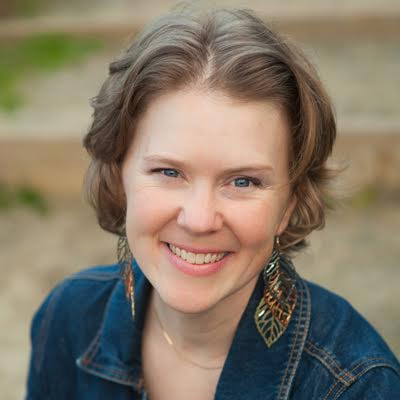A half hour from my house stands an icon I used to rarely think about. It doesn’t look like much: stopped cars on a wide freeway, a low-lying government building. And in red letters, on a white overhang, a sign: Mexico.
The San Ysidro Port of Entry is considered one of the busiest border crossings in the world. About 300,000 people commute back and forth every day through this entry point between San Diego and Tijuana. The political boundary between the US and Mexico also marks the border with the greatest economic disparity of the world.
Growing up white in San Diego, I mostly ignored the border. Ignored the city and its restaurants, and hotels. Ignored the violence, ignored the plight of people deported, ignored the brutal iron wall that stands sentry in the waves on a beautiful beach in the borderland.
Why would I go to Tijuana, when everything I thought I needed was on this side of the fence? Why would I think about the border when it so rarely touched my life?
This isn’t true of every white person. I have friends who regularly travel to Baja—to surf, to vacation, to serve, to explore. Others seek out cheap medicine or healthcare, or the raucous, infamous Tijuana nightlife.
But despite my fluent Spanish, and growing up within spitting distance of a Spanish-speaking country, I’d only visited Tijuana twice—once as a kid, and once after college. I didn’t like it much either time—the pushy vendors, the activity we chose (shopping), the sense that “real” Mexico was further away, in the historic cities at Mexico’s center.
So like a lot of people in my hometown, I just didn’t think much about Tijuana, much like you ignore like an occasionally itchy tag in the back of a shirt.
A few years ago, though, I started attending a local Spanish-language church, and the border—so close, and so far away—got more uncomfortable. Less like an annoyance, and more like a wound. Less like someone else’s problem, and more like my own.
Why, I wondered, did I feel so disconnected to my sister city? Why, as a fluent Spanish speaker, had I only visited twice? Why, when I had gone, did I feel so uncomfortable?
What was wrong with Tijuana? No. What was wrong with me?
The spiked iron wall in the ocean divided family after family in my congregation. Women in my Bible study couldn’t go to serve on missions in their native country because they were undocumented, and would not be able to return. How could I pretend to ignore what the border meant to real human beings?
An undocumented friend in my Bible study—I’ll call her M—sends her American-born daughters to visit their grandparents in Mexico every summer. M celebrates the closeness those visits create. But her daughter had a milestone birthday, and her dearest wish was to celebrate with her entire family, all in one place.
That simply isn’t possible. M and her husband can’t leave unless they exit permanently and yank their kids away from their native soil.
Another friend discovered she had liver cancer. Unable to afford treatment in the States, she went back to the public health system in Mexico. Her husband of decades couldn’t go with her; his income supported them both. When she grew worse and died near Mexico City, there was no way for him to return for her funeral. No way for him to say goodbye.
I live without these restrictions. Why had I chosen to stay away?
Last fall, hoping to turn towards Tijuana, I asked my friend Lety if she and her husband, Juan Daniel, might visit the city with my daughters and me for a morning. We took the I-5 I’ve traveled thousands of times in my life until we passed the red letters marking our entry into Mexico. The road curved to slow motorists for potential stops, and then, so simply, so oddly, we were in a completely different country.
It’s so much weirder than taking a plane. It points out the split personalities that our borders create. Same land, same chaparral scrub brush, same rainfall, same ocean waves. Two completely different planets.
Perhaps the in-my-face abruptness is another reason I hesitate to cross.
That morning, I expected to host, but in typical Latino fashion, Lety and Juan Daniel treated us to a generous hospitality my gringo heart still struggles to comprehend. We sampled local baked goods and toured the aquarium. We strolled through a garden, got tacos at a local stand. It was a lovely day.
Later, as we headed home, we drove along the ugly corrugated metal wall that divides the countries. I couldn’t help but notice someone had attached large white wooden crosses to it every few feet, clearly a vertical cemetery. “What are those?” I asked Juan Daniel.
“They put one up every time someone dies crossing,” he said.
I breathed in. The wall and its crosses stretched to a vanishing point on the horizon. I had never seen them before.
How could I have known all that I didn’t know? My blind spots blinded me.
Writing this, I imagine my blind spots, my fear, my nervousness about the border—even after visiting—like invisible crosses on my side of the wall. I think about how hard it is, even sharing a language, to cross the invisible borders at my church. How the dividing lines of ethnicity, culture, privilege, and class can divide me from women who are my sisters.
It’s easier to turn away. Easier for me to stay afraid, to stay blind, to stay away from the borderland. To think of “illegals” instead of friends. To sigh about political rhetoric and skip to the next article instead of listening to real stories.
But I am so tired of being rich, and white, and blind. So tired of not admitting to myself how much my fear impoverishes me. So tired of trying to limit my world, instead of embracing the enormous open doorway that is right in front of me. I’m ready to face the border and the richness that awaits on the other side.
* * * * *
Heather Caliri is a writer from San Diego who knows first-hand how tiny steps of bravery can transform lives. She loves breakfast, advice columns, and non-violent murder mysteries. Get her short e-book, “How To Become Braver,” for free here.


